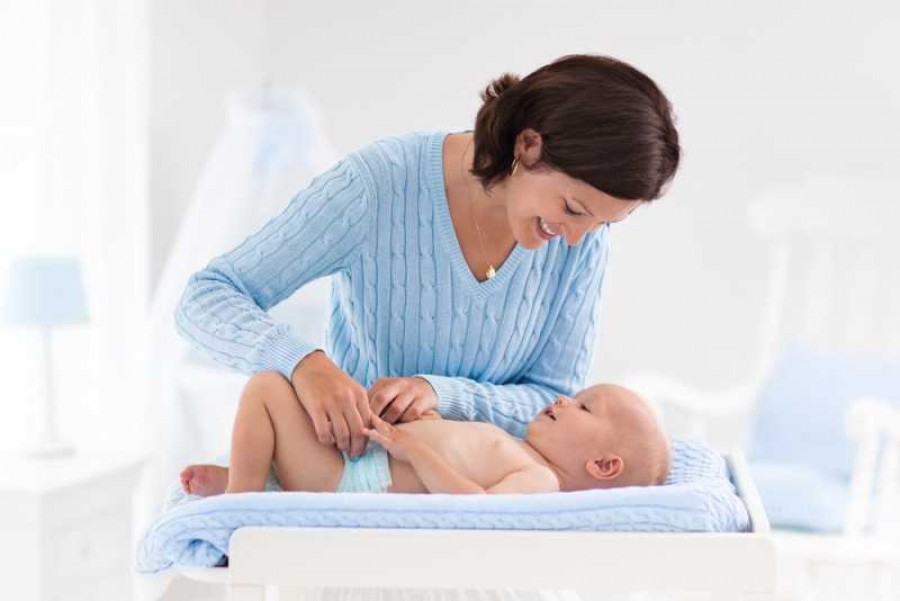Baby Potty Training Basics
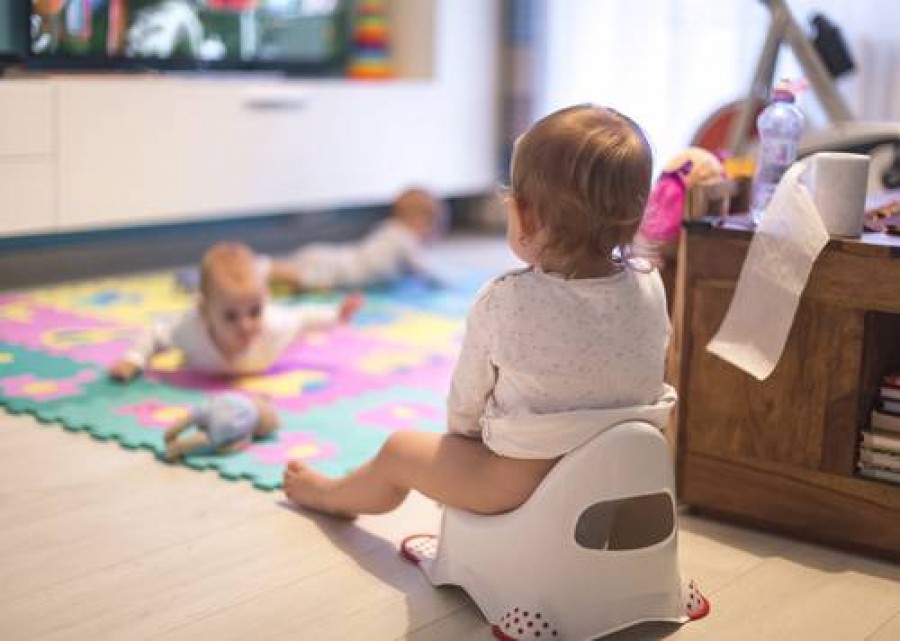
Many parents begin to potty train their children between the age of eighteen months and three years. However, do not rush your child and make them start potty training before they begin to show signs that they wish to be potty trained, because it can be frustrating to try to teach a child before they are ready.
Babies learn to use the toilet at different rate. On average, it takes between one to three months for a child to become potty trained. It takes even longer to teach children to use the toilet independently which includes wiping off.
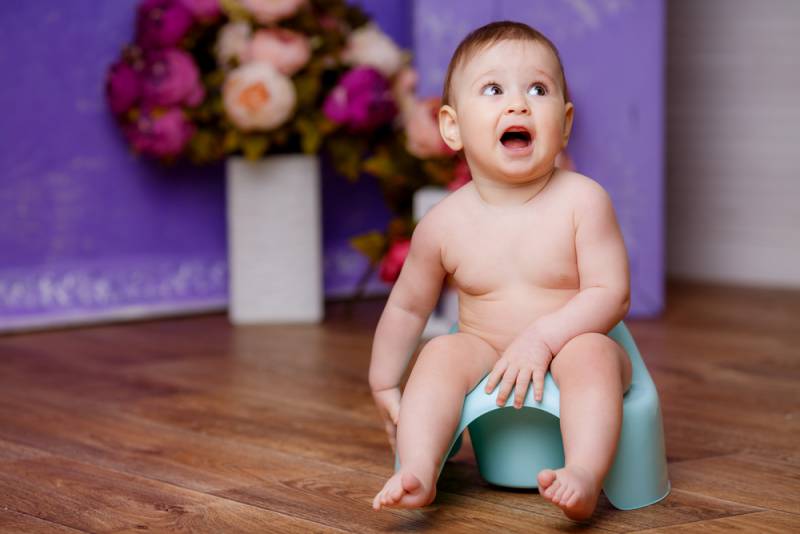
Signs that Your Baby is Ready
How to know if it’s time for your baby to get some ‘potty training lessons’ from his mother? Mothers, especially new mums, don’t realize the right time to start potty training for their babies and that is where their babies develop a habit of pooping whereever and being cleaned by their mothers at an age where they should have been properly potty trained. There are a few signs that may be helpful in realizing if it is the right time to start ‘potty training lessons’ for your growing baby:
- Your baby realizes that they need to go to the toilet.
- Your baby can gives you signs or tells you that they need to go to the toilet.
- They can control their bladder and bowel movement for at least for a small period of time.
- Their nappy remains dry for a few hours during nap time.
- Your baby is able to take off their own clothes.
- Your baby is able to walk and climb properly.
- Your baby is willing and able to listen to and follow your instructions.
- Your baby is able to sit peacefully in one place for at least a little bit of time.
- Your baby enjoys sitting on chairs and/or seats.
Methods to Potty Train Your Baby
- Some parents start by leaving their baby’s bottom naked or covered with an absorbent cloth. They, then, keep an eye on the baby’s movements and actions and try to understand their cues. Once they realize their baby needs to use the potty, the parents directly take their children to the toilet.
- Start making your baby sit frequently on the toilet. Let him or her become used to and comfortable with the toilet. Slowly, you should notice that your baby is peeing and pooping more frequently in the toilet.
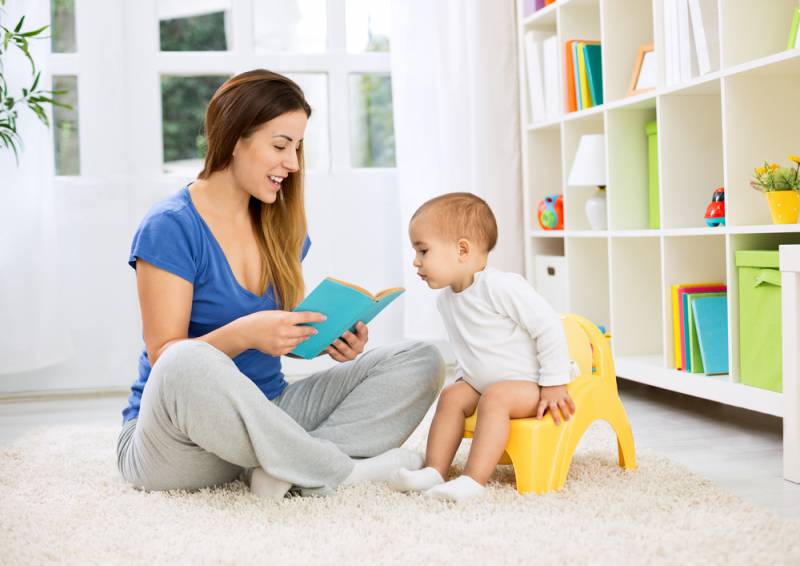
Positives of Potty Training Your Baby
- Allows you to save money, because you no longer have to buy nappies.
- It is easier to clean a baby on a toilet than changing a nappy.
- It prevents nappy rashes and infections.
- It saves your time and energy.
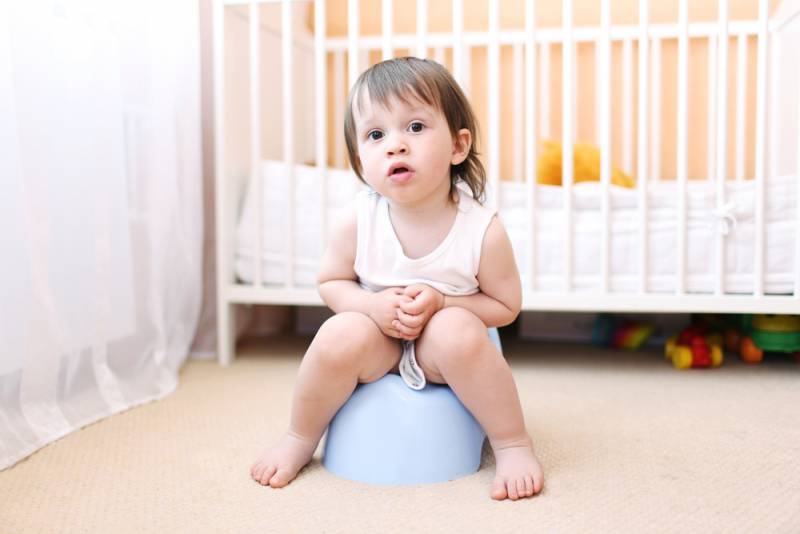
Negatives of Potty Training Your Baby
- You baby may feel irritated and/or stressed.
- The process can be tiring for your little one.
- Your baby could resist toilet training.
Helpful Tip(s)
- Do not try forcing your baby to learn faster.
- Start and stop training as per your child’s will and readiness.
- Be very patient as this process can be very time consuming and messy.
- Try to not to train your baby near any sharp or pointed surfaces, because your baby might move a lot in the beginning due to anxiety or stress.
- Every person and child is different, so try to use the method that works best for you and your baby.


